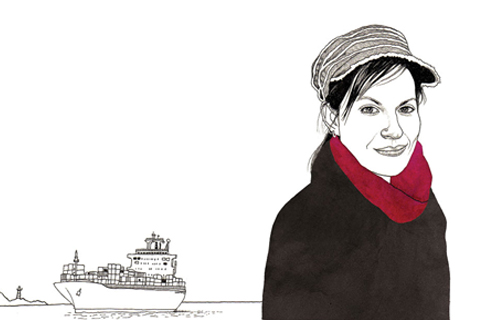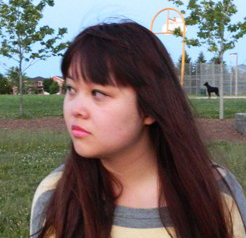In an era in which transnational corporations rely heavily on the unimpeded flow of goods and energy across borders, many governments now view anything that interrupts this flow as a threat to economic – and therefore national – security. So what happens when governments seem willing to sacrifice civil rights in order to keep goods moving across borders? That’s a question that intrigues Deborah Cowen, a geography professor.
In practice, Cowen notes, the interests of large corporations protecting their global supply chains through various territories often clash with the interests of citizens and workers who live there. She points to security clearance programs in Canada that violate the privacy rights of port workers and their families, allowing them to be suspended from work based on “reasonable suspicion” of terrorist affiliation – with little opportunity to appeal. “These new security regulations threaten to institutionalize racial profiling and directly undermine collective agreements and civil rights,” says Cowen, 36.
The ways in which governments and corporations work together to create a “supranational” system of security to ensure the global flow of goods also intrigues Cowen. She sees the Gulf of Aden off the coast of Somalia – with a growing number of military actions in response to piracy – as a place where experiments in public and private forms of security are underway. Because the gulf carries a significant volume of world trade, the UN Security Council authorized the deployment of multinational warships within sovereign Somali waters due to the looting. What’s overlooked, says Cowen, is how these efforts resemble 19th-century European military strategies used to lay imperial claims to territory.
Cowen’s doctoral dissertation – which eventually became her first book, Military Workfare: The Soldier and Social Citizenship – focused on the relationships between social welfare and state militaries. Historically and in the present, the practice of exercising authority over transnational space to ensure commodity flows has been crucial to imperialist efforts, she says. Her new book, Rough Trade, aims to expose how the military pervades civilian life, and promote a rethinking of security and labour rights practices in the face of globalized production.
Recent Posts
U of T’s 197th Birthday Quiz
Test your knowledge of all things U of T in honour of the university’s 197th anniversary on March 15!
Are Cold Plunges Good for You?
Research suggests they are, in three ways
Work Has Changed. So Have the Qualities of Good Leadership
Rapid shifts in everything from technology to employee expectations are pressuring leaders to constantly adapt






